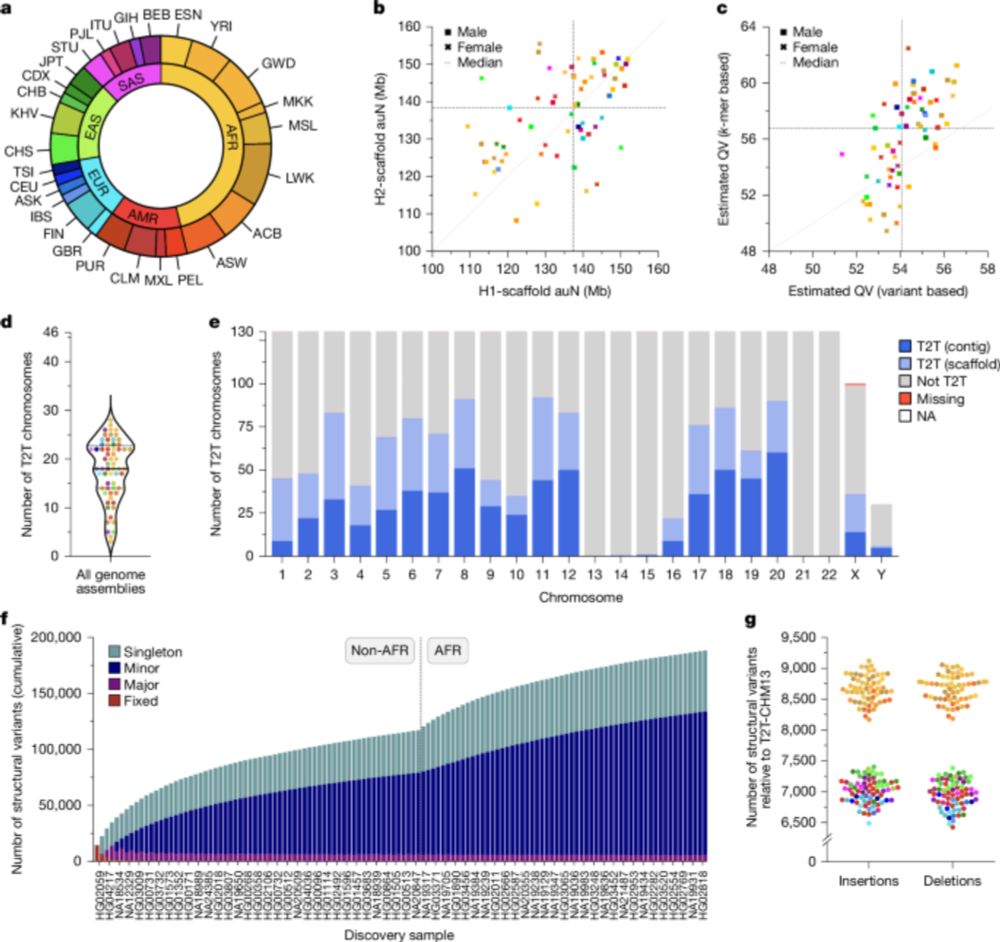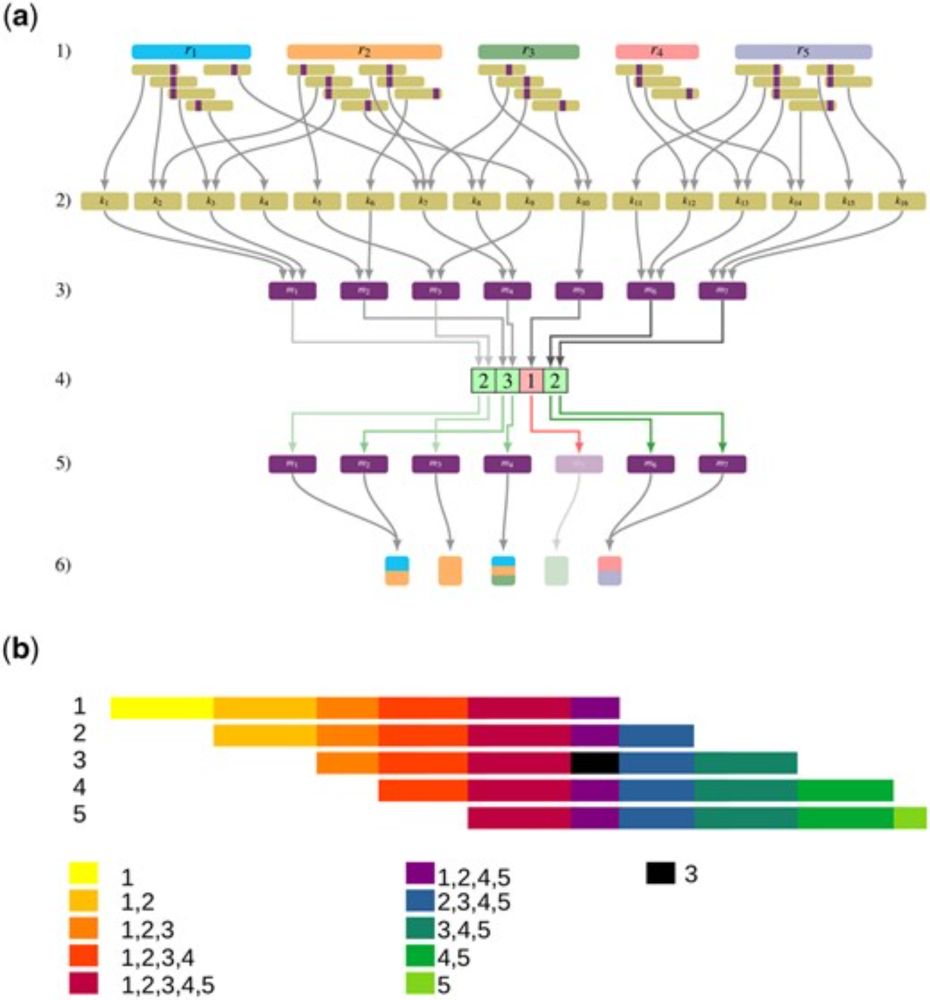www.biorxiv.org/content/10.1...
This work tackles the issue of Mash which ignores repeats in the genome, providing better distance estimation #GI2025


www.biorxiv.org/content/10.1...
This work tackles the issue of Mash which ignores repeats in the genome, providing better distance estimation #GI2025

If you're a PI working in algorithmic genomics (& you can recommend my lab to your top graduating students ;P), please let them know!
If you're a PI working in algorithmic genomics (& you can recommend my lab to your top graduating students ;P), please let them know!

👉 Preprint www.biorxiv.org/content/10.1...
👉 Github github.com/rolandfaure/...

👉 Preprint www.biorxiv.org/content/10.1...
👉 Github github.com/rolandfaure/...
Το συνέδριο #RECOMB2026 θα πραγματοποιηθεί στη Θεσσαλονίκη, στις 26-29 Μαΐου 2026. Οι δορυφορικές εκδηλώσεις θα διεξαχθούν στις 24-25 Μαΐου 2026. Σημειώστε την ημερομηνία!

Το συνέδριο #RECOMB2026 θα πραγματοποιηθεί στη Θεσσαλονίκη, στις 26-29 Μαΐου 2026. Οι δορυφορικές εκδηλώσεις θα διεξαχθούν στις 24-25 Μαΐου 2026. Σημειώστε την ημερομηνία!
Computing average nucleotide identity (ANI) is neither conceptually nor computationally trivial. Its definition has evolved over years, with different meanings and assumptions (1/5)

Computing average nucleotide identity (ANI) is neither conceptually nor computationally trivial. Its definition has evolved over years, with different meanings and assumptions (1/5)
Nanopore's getting accurate, but
1. Can this lead to better metagenome assemblies?
2. How, algorithmically, to leverage them?
with co-author Max Marin @mgmarin.bsky.social, supervised by Heng Li @lh3lh3.bsky.social
1 / N
Nanopore's getting accurate, but
1. Can this lead to better metagenome assemblies?
2. How, algorithmically, to leverage them?
with co-author Max Marin @mgmarin.bsky.social, supervised by Heng Li @lh3lh3.bsky.social
1 / N
Logan now democratizes efficient access to the world’s most comprehensive genetics dataset. Free and open.
doi.org/10.1101/2024...

Logan now democratizes efficient access to the world’s most comprehensive genetics dataset. Free and open.
doi.org/10.1101/2024...

and GH repo: github.com/refresh-bio/...

and GH repo: github.com/refresh-bio/...
@rayan.chiki.bsky.social
#Bioinformatics


@rayan.chiki.bsky.social
#Bioinformatics
Any one individual can argue about their own motivation, but it would naive to dispute that's an accurate description of many people.
Any one individual can argue about their own motivation, but it would naive to dispute that's an accurate description of many people.
Our preprint on the K2R index, being able to efficiently associate kmers to the reads containing them is finally out there!
A thread!
academic.oup.com/bioinformati...

Our preprint on the K2R index, being able to efficiently associate kmers to the reads containing them is finally out there!
A thread!
academic.oup.com/bioinformati...
We present Oreo a tools that reorder long reads datasets in a way to compress them efficiently with ANY universal compressor like gz, zstd, xz ...
TLDR: You can get state of the art compression WITHOUT a dedicated compressor/decompressor!
academic.oup.com/bioinformati...
A thread!

We present Oreo a tools that reorder long reads datasets in a way to compress them efficiently with ANY universal compressor like gz, zstd, xz ...
TLDR: You can get state of the art compression WITHOUT a dedicated compressor/decompressor!
academic.oup.com/bioinformati...
A thread!
We present K2Rmini, an ultra-fast, grep-like tool that extracts sequences of interest from FASTA/FASTQ files based on their k-mer content.
www.biorxiv.org/content/10.1...
A thread

We present K2Rmini, an ultra-fast, grep-like tool that extracts sequences of interest from FASTA/FASTQ files based on their k-mer content.
www.biorxiv.org/content/10.1...
A thread
Estimating mutation rates using k-mers is fast—but what happens when repeats dominate the genome?
In a new preprint, Haonan Wu, Antonio Blanca, and myself propose a *repeat-aware* estimator that's accurate even in centromeres.
Estimating mutation rates using k-mers is fast—but what happens when repeats dominate the genome?
In a new preprint, Haonan Wu, Antonio Blanca, and myself propose a *repeat-aware* estimator that's accurate even in centromeres.

